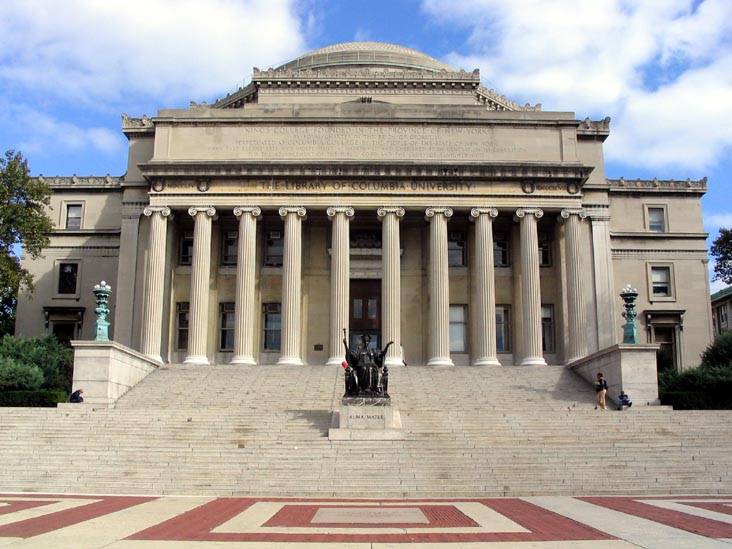Education
New Management Won’t Fix a Broken Business Model
The basic university education business model has failed students now burdened with debt, by failing to teach them necessary lessons.

We should all stop celebrating Ivy League presidents resigning.
The failed business model of American university education
Last December, Liz Magill, then president of my alma mater, the University of Pennsylvania, resigned. This was the result of a public relations nightmare for the school, brought on by a rise in antisemitism on campus, widespread protests, and, of course, her disastrous performance in front of the House Education and Workforce Committee. While the right celebrated, I wrote a cautionary tale about their excitement. Now, as Ivy League presidents keep dropping like flies, the latest victim being Columbia’s chief administrator, Minouche Shafik, we should all remember that new management doesn’t fix a broken business model.
As was evident by Liz Magill and Claudine Gay’s viral appearances in front of Congress, the Ivies are plagued by a vacuous type of moral relativism. For decades, failing to prioritize intellectual diversity in the hiring of faculty and admission of students has led to declining quality in curriculum and campus discourse. Choosing to ignore warnings of long-time heterodox academics, the administrators hid behind lengthy “statements of open expression,” as ours was called at Penn. These sent free speech monitors to right-wing events where locations were decided based on the safety considerations of expected protesters and looked the other way as action was taken against faculty and students accused of “hate speech.” What they lacked was any real commitment to First Amendment principles.
Emboldening the left is the last thing one wants to do
One should certainly acknowledge these presidents have failed to do their jobs of maintaining their university’s image and securing donations, thus making a strong argument that they should be pushed out. Nevertheless, despite “three presidents down,” we have seen little to no substantive change at these universities. Less controversial interim presidents have followed, and with them fruitless committees investigating “hate” on campus like the task forces at Penn.
In the case of Columbia, the anti-Israel left celebrated Shafik’s resignation, citing her use of administrative power to punish (a small number) of Columbia students involved in the protests. Many on the right have suggested that “this is just the beginning,” and these resignations represent a reckoning against the powers that be in academia. In reality, all they do is take the heat off the universities, a heat which is absolutely vital to the type of change conservatives want and these schools need. In some instances, as has been evident in the response to the Columbia president’s resignation, this strategy of pushing out presidents seems to have emboldened left-wing actors who have substantial influence in university spaces to engage in a similar “naming and shaming.”
Antisemitism is only one symptom
Fiery admissions of concern from well-known alumni at Harvard and Penn were crucial to the resignations of Magill and Gay. In their public statements against the universities, Marc Rowan and Bill Ackman cited a litany of concerns they had about the state of their alma maters, chiefly that they had become harbors of antisemitism. This problem was not solved by Magill and Gay’s absence, with the universities taking very little action against encampments this spring.
It makes perfect sense, of course, that the protests still occurred with new leadership because the problem is, in fact, much deeper. Most of these universities cost upwards of $80,000 a year, a burden that has strapped roughly 43 million Americans with student loan debt. Many of these individuals majored in social sciences and humanities, and they simply could not get a return on their education investment sufficient to pay back their debt.
While these students leave universities unable to find well-paying jobs in the careers they have pursued, they also leave unprepared for citizenship. Where liberal and civic education used to be at the center of advanced learning, creating individuals who were empathetic, in pursuit of the truth, and literate in history and government, today’s college graduates lack anything remotely resembling those qualities. A recent survey conducted by the American Council of Trustees and Alumni (ACTA) showed a stunning lack of knowledge about the United States and its past, with just 28% knowing that the 13th Amendment freed the slaves.
The business model need thoroughgoing replacement
None of this is particularly surprising, especially to those of us following the situation at America’s premier universities this last year. What is shocking, however, is how, in a country that prides itself on its free markets, an entire industry has been running for decades on a failing business model that delivers its consumers such a lackluster product.
By ridding ourselves of these university presidents, we only succeeded in removing an easy target of public criticism, a fact that allows the schools to deflect accountability. The focus of our ills now must be some obscure bureaucratic structure hiding behind veils of “academic freedom.” If concerned actors, alumni, and members of Congress alike are serious about seeing reform in higher education, they need to target the business model of higher education and not just keep looking for new management.
Our students and our country deserve better.
This article was originally published by RealClearPolitics and made available via RealClearWire.
Lexi Boccuzzi is a contributor at Young Voices and a senior at the University of Pennsylvania. She has written about higher education, the media landscape, and Gen Z conservatism in The Daily Pennsylvanian and has just founded a new heterodox student publication, The Pennsylvania Postwhere she serves as Editor-in-Chief.
-

 Accountability4 days ago
Accountability4 days agoWaste of the Day: Principal Bought Lobster with School Funds
-

 Civilization1 day ago
Civilization1 day agoWhy Europe Shouldn’t Be Upset at Trump’s Venezuelan Actions
-

 Executive2 days ago
Executive2 days agoHow Relaxed COVID-Era Rules Fueled Minnesota’s Biggest Scam
-

 Constitution3 days ago
Constitution3 days agoTrump, Canada, and the Constitutional Problem Beneath the Bridge
-

 Christianity Today1 day ago
Christianity Today1 day agoSurprising Revival: Gen Z Men & Highly Educated Lead Return to Religion
-

 Civilization2 days ago
Civilization2 days agoThe End of Purple States and Competitive Districts
-

 Executive2 days ago
Executive2 days agoWaste of the Day: Can You Hear Me Now?
-

 Civilization5 days ago
Civilization5 days agoThe Conundrum of President Donald J. Trump












